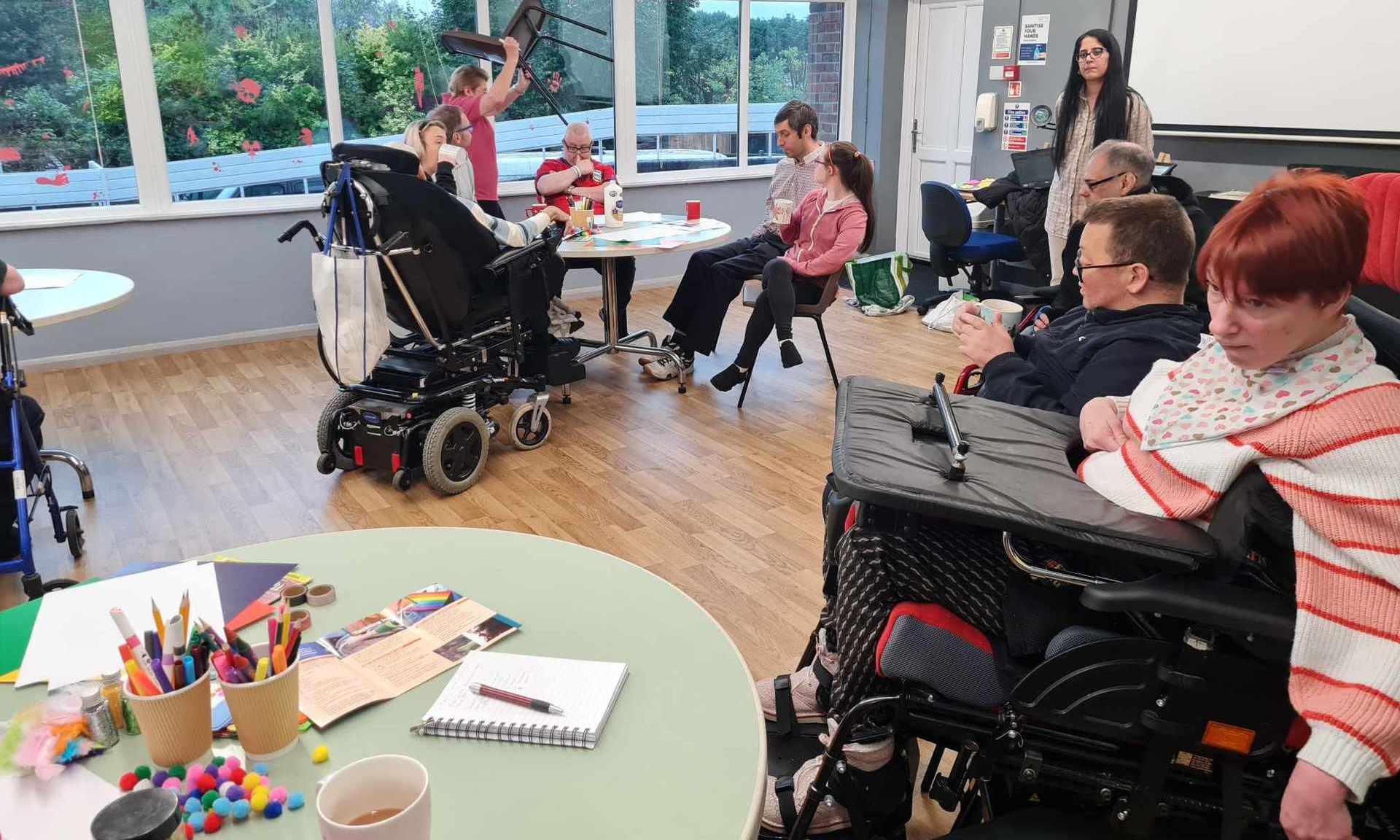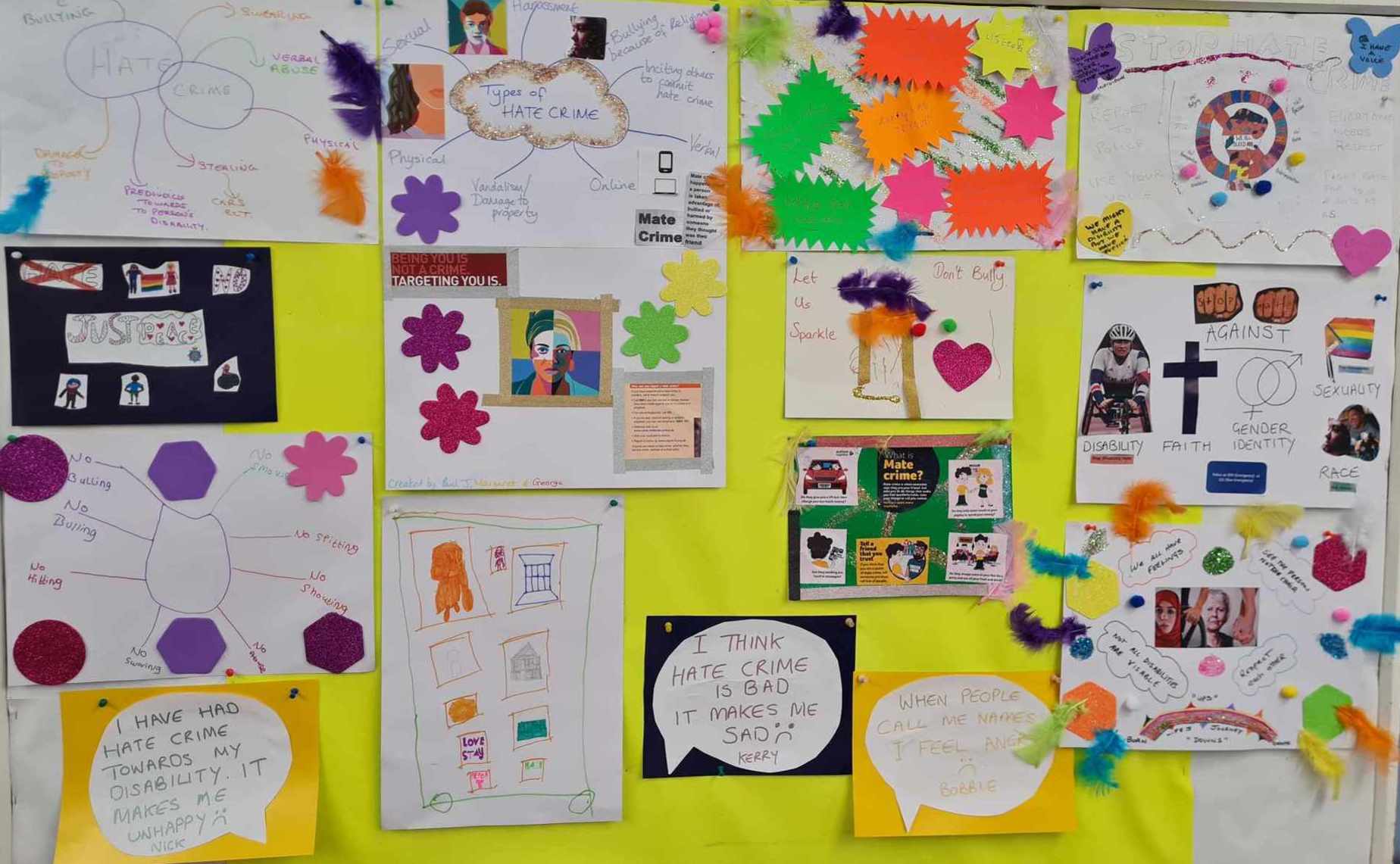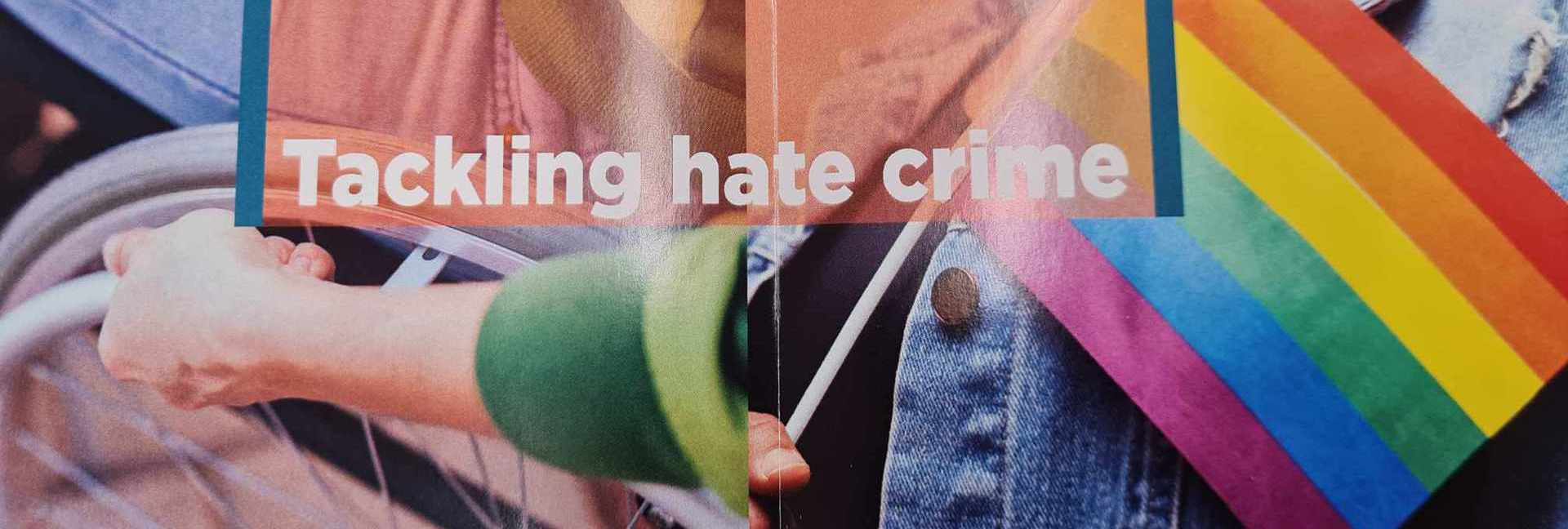Hate Crime
Posted on 23rd October 2023 at 10:16
Combating Hate Crime Against Adults with Complex Needs: A Call to Action
Cerebral Palsy Midlands were visited on Friday 20th October by ASB & Hate Crime Officer, Innayah Aziz, from West Midlands Police. This is a great partnership and we had planned a session together as part of National Hate Crime Awareness Week. Our plan was to create a poster campaign around Hate Crime and to have a Hate Crime Board within our centre here to help and guide our citizens should they need it.
Everyone has the right to live free from fear, intimidation and abuse and as we are a charity organisation that directly works with adults with disabilities, we make it a priority to inform our community how they can stay safe and report hate crime if needed.

Innayah encouraged our citizens to thin about Hate Crime.

Our NEW Hate crime Board at Cerebral Palsy Midlands.
Understanding Hate Crime:
Hate crimes are acts of violence or hostility directed towards a person or group because of their disability, race, religion, sexual orientation, or other personal characteristics. It is vital to recognise and address hate crimes as they can have severe physical and emotional consequences for those affected. For adults with disabilities who have complex needs, being targeted by hate crime can be especially distressing.
Types of Hate Crime:
Physical Violence: Hate crimes may involve physical assault, including hitting, kicking, or even sexual assault.
Verbal Abuse: Verbal harassment can be just as damaging. It includes name-calling, offensive comments, or threats.
Online Harassment: In today's digital age, hate crimes have extended into the online realm. Offensive posts, messages, or cyberbullying all constitute online hate crimes.
Bullying and Intimidation: Persistent bullying, intimidation, and exclusion can cause significant emotional harm.
Damage to Property: Hate crimes may also involve damaging personal property or public spaces with malicious intent.
Reporting Hate Crime:
If you, or someone you know, has experienced a hate crime, it is crucial to report it. Here are the steps to follow:
Contact the Police:
For non-emergencies, call 101.
In case of immediate danger or if a crime has occurred, call the police by dialing 999.
If you're deaf, hard of hearing or speech impaired, you can use text phone 18001 101.
Web chat www.west-midands.police.uk
Visit your local Police Station.
report it online via www.report-it.org.uk/
Non-Emergency Reporting: If the situation is not an emergency, you can report the hate crime to your local police department or call 101. They will guide you on the necessary steps.
Third-Party Reporting: If you are uncomfortable reporting directly to the police, you can use third-party reporting services, such as local advocacy organisations like Cerebral Palsy Midlands or report it online via the True Vision Website
Keep Records: It's essential to document the incidents, including dates, times, locations, and any witnesses. This information will be valuable when making a report.
Tagged as: Birmingham, Harborne, Hate Crime, Reporting Hate Crime, Tackling Hate Crime, West Midlands Police
Share this post:






